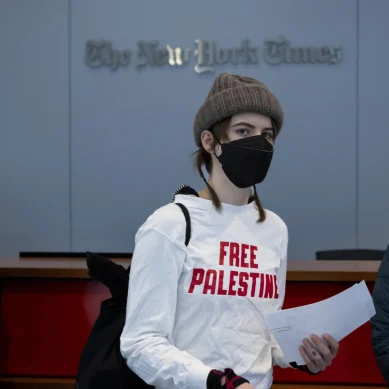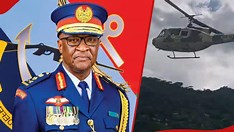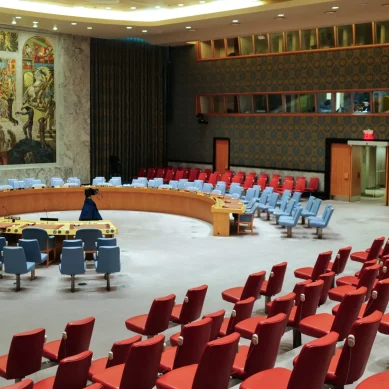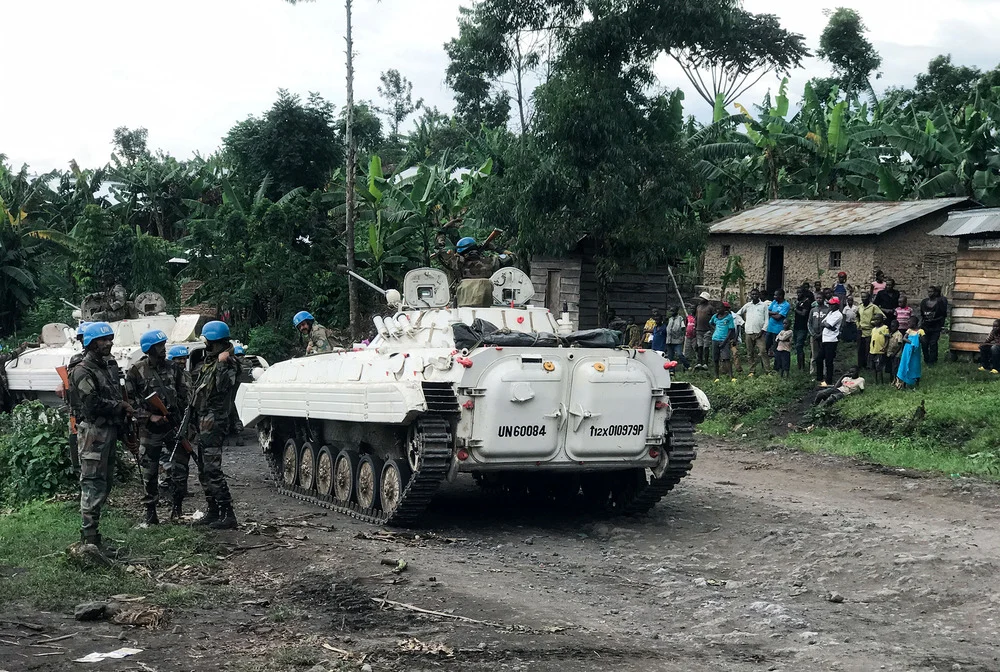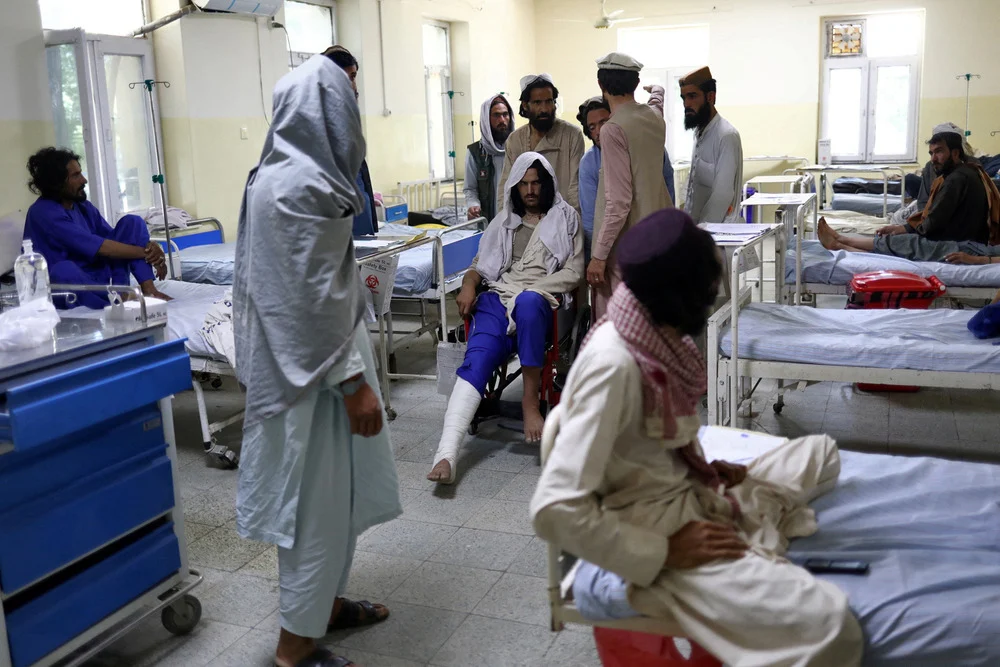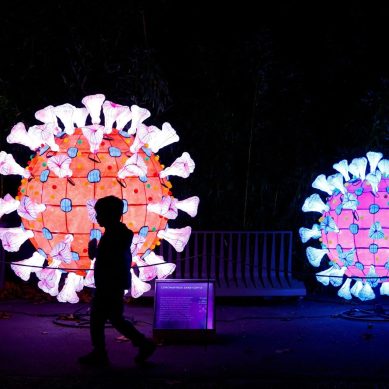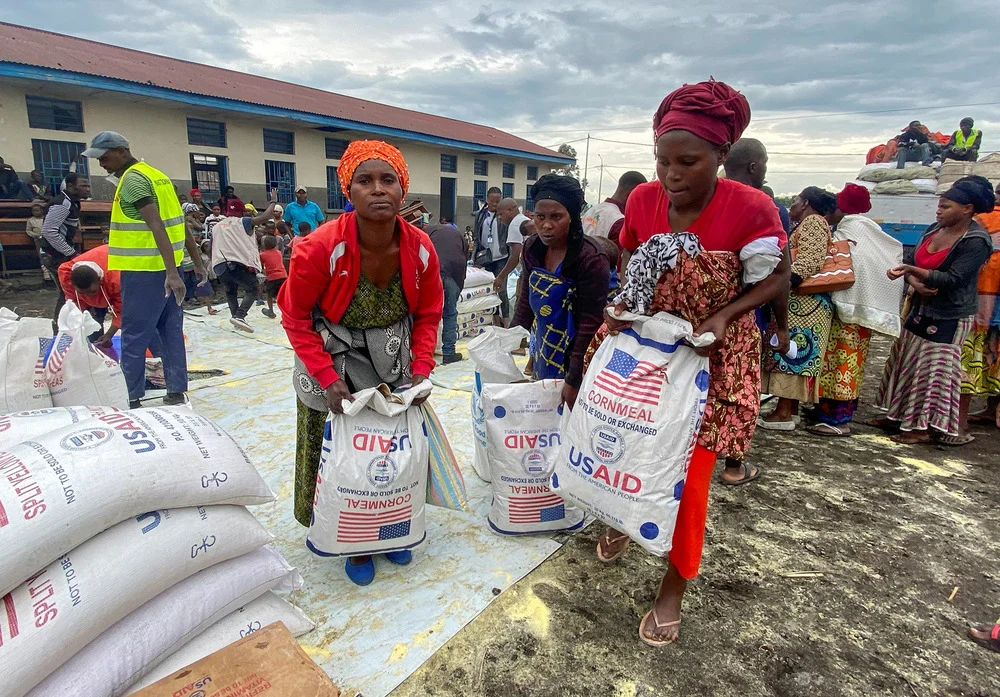
The Democratic Republic of Congo (DRC) M23 rebel’s foreign links – and abuses its fighters committed a decade ago – help explain the media attention and public criticism it has received. But many other armed groups also pose a serious threat to civilians in the east.
To address that threat, DRC President Felix Tshisekedi has placed North Kivu and Ituri under martial law since May 2021. The measure gives military officials the power to ban public assemblies, prohibit movement in certain places and search people without court orders.
Rights groups say military rule has been used to curtail a whole range of civil liberties, while residents say it has negatively affected the way their local administrations are run.
“Generals who should be concentrating on military operations are dealing with matters outside their competence and for which they were not prepared,” said Stewart Muhindo an activist with LUCHA, a civil society group campaigning for political reform in DRC.
Civilian deaths have also more than doubled in the past year, according to the UN, leading many to question the value of the initiative.
“Martial law is a bad solution to a very real problem,” said Espoir Ngalukiye, who is also part of LUCHA. “It was done for political reasons, but no armed group has put down their weapons since.”
One of the deadliest groups in eastern DRC is the Cooperative for the Development of the Congo, or CODECO, which claims to represent the interests of Ituri’s Lendu community.
CODECO factions are notorious for targeting civilians – especially from the Hema group. Fighters killed at least 60 people at a displacement camp in February, and dozens more at a gold mine in May. Some 1.7 million people are displaced in Ituri overall.
Another group that regularly menaces civilians is the ADF. The rebel movement has origins in Uganda – where it fought the government of Yoweri Museveni – but moved over into DRC in the 1990s.
The ADF has IS links, although UN investigators haven’t found evidence of its operations being controlled by the global militant group. Experts fear overstating the ties could lead to an ineffective war-on-terror response that overlooks ADF’s local characteristics.
After ADF was blamed for deadly suicide bombings in Uganda in November, Tshisekedi allowed the Ugandan army to conduct a military campaign against the group in North Kivu and Ituri.
Ugandan officials have talked up the success of this operation, yet the ADF has dispersed from its bases and launched more attacks than it did prior to the Ugandan military’s arrival.
“While we thought that we’d overcome the ADF in just a few weeks, we’ve rather found that the areas of violence have spread,” said John Musombolwa, a lawyer for a civil society group in Mambasa, which is in Ituri and has been affected by ADF attacks.
Analysts say combating the ADF may not be the primary goal of Kampala’s intervention. More important are economic factors such as securing Ugandan oil fields and a road project construction for new trade routes into DRC – a valuable export market for Uganda.
The trade plans and military pact appear to have rankled Rwanda and contributed to the M23 crisis. “Kigali saw this operation as a threat,” said the CRG’s Stearns. “There’s a deep distrust between Uganda and Rwanda.”
Military operations in eastern DRC by neighbouring Burundi may also have deepened Rwanda’s sense of isolation, even if ties between Kigali and its southern neighbour have improved since the death of former Burundian president Pierre Nkurunziza.
In December, hundreds of Burundian troops reportedly crossed into DRC’s South Kivu province in a clandestine operation designed to combat the RED-Tabara rebel group, which opposes the government in Bujumbura.
The presence of RED-Tabara and other Burundian and Rwandan armed groups in South Kivu has aggravated various complex conflicts there in recent years. As is the case across eastern DRC, civilians are bearing the brunt of the violence.
Despite the failure of military operations, Tshisekedi has approved the deployment of an East African military force. The decision was taken shortly after DRC joined the East African Community, a regional trade bloc, in March.
It is unclear when the force will become operational, however, and how it will fit in with existing interventions. Inviting more foreign soldiers into eastern DRC has also raised fears of a free-for-all of the kind seen during wars of the past.
Edgar Mateso, a civil society leader from North Kivu, said he was concerned about “aggressor countries” operating in DRC and argued that foreign interventions had proven unsuccessful over the years.
“For decades, we have known several international forces deployed in Congo in the context of peacekeeping operations,” Mateso says. “[Yet] nothing has changed on the ground. What we need is a national solution.”
Away from military operations, DRC has launched talks with rebel groups. A first round of discussions was held in April in the Kenyan capital, Nairobi, though foreign rebel movements like the ADF and dangerous local militias like CODECO were absent.
“Gathering warlords around the table, and giving them a per diem, won’t solve the deepest problems.”
Onesphore Sematumba, a researcher with the International Crisis Group, described the talks as a “complete improvisation” in which “nothing was planned.” He said if negotiations restart then there should be a clear agenda.
“To open a real conversation about insecurity in the east, civil society, traditional leaders, members of displaced communities, will also have to be involved,” Sematumba said. “Gathering warlords around the table, and giving them a per diem, won’t solve the deepest problems.”
Muhindo of LUCHA said peace talks shouldn’t result in rebels getting a free pass for crimes they’ve committed. Had M23 fighters been punished for abuses a decade ago, “there would not be a resurgence in 2022,” Muhindo argued.
“Of course, we need dialogue, but a dialogue that will not sacrifice justice,” the activist said. “Until now, all the dialogues in Congo seem to consecrate the impunity of militiamen by granting them a general amnesty or integration into the army.”
Plans to disarm rebels are also moving forward after several years without a national initiative in place. A strategy for the new Disarmament, Demobilisation, Community Recovery and Stabilisation programme, or PDDRCS, was adopted in March.
The scheme aims to correct some of the mistakes of past DDR initiatives, which struggled to address the political factors driving armed group mobilisation and failed to prevent fighters from re-joining rebel movements.
This time around, decision-making powers are supposed to be decentralised to local authorities and communities that have been victims of armed groups and are expected to receive demobilised fighters.
Still, there is scepticism about the programme. The nomination of Tommy Tambwe – a former rebel and controversial figure in the DRC security landscape – as a coordinator has triggered criticism from rights groups and angered some armed group leaders.
Another sticking point is army integration. Kinshasa has said this will only be possible on an individual basis, and that the wholesale integration of entire rebel groups – a feature of past DDR campaigns – will be avoided this time.
This policy may help break cycles of impunity and mean fewer incentives for rebels to pick up weapons in the future. Yet joining the military remains a key motivation for many armed groups in the country.
“Some are ready to go back to civilian life, but others want to be integrated in the army or the police,” said Musamba, the researcher. “But [the government] can’t reward rebel fighters with promotions.”
Kinshasa will also need to convince rebels to trust its promises of assistance. That may be hard to do after recent let-downs: Thousands of combatants surrendered after Tshisekedi took office, but they received no support and many returned to arms.
For Chober Agenonga, an international relations professor at the University of Kisangani in northern DRC, the challenge of supporting militiamen willing to lay down their weapons is “the big obstacle to the peace process” in the country.
Agenonga said ex-combatants left to fend for themselves may commit abuses against civilians: “All commitments not accompanied by support are followed by relapses [from the rebels]… it pushes them to commit atrocities.”
Muhindo Mughanda, a professor of political science at the University of Goma, said armed groups are fighting for a reason, which the government must engage with if the new DDR process is to succeed. Reducing conflict means tackling corruption, building a disciplined army, and reducing poverty and inequality – “the ingredients of insecurity” – he explained, adding: “We must fight against all of this to hope for a lasting peace.”
- The New Humanitarian report
